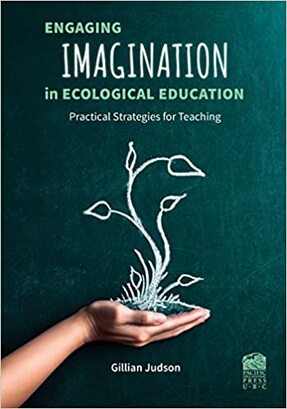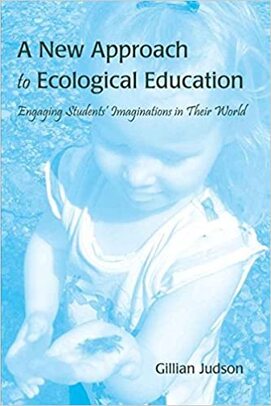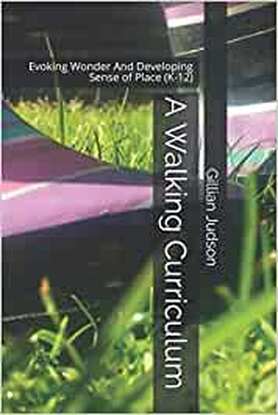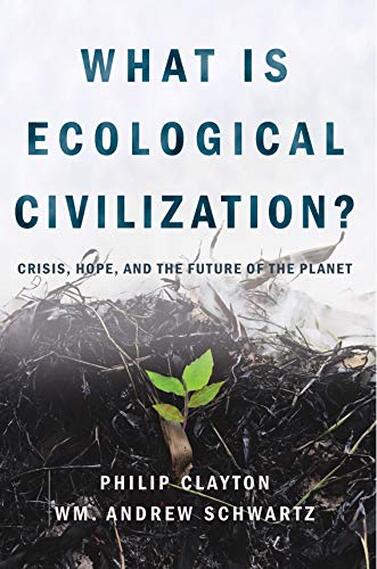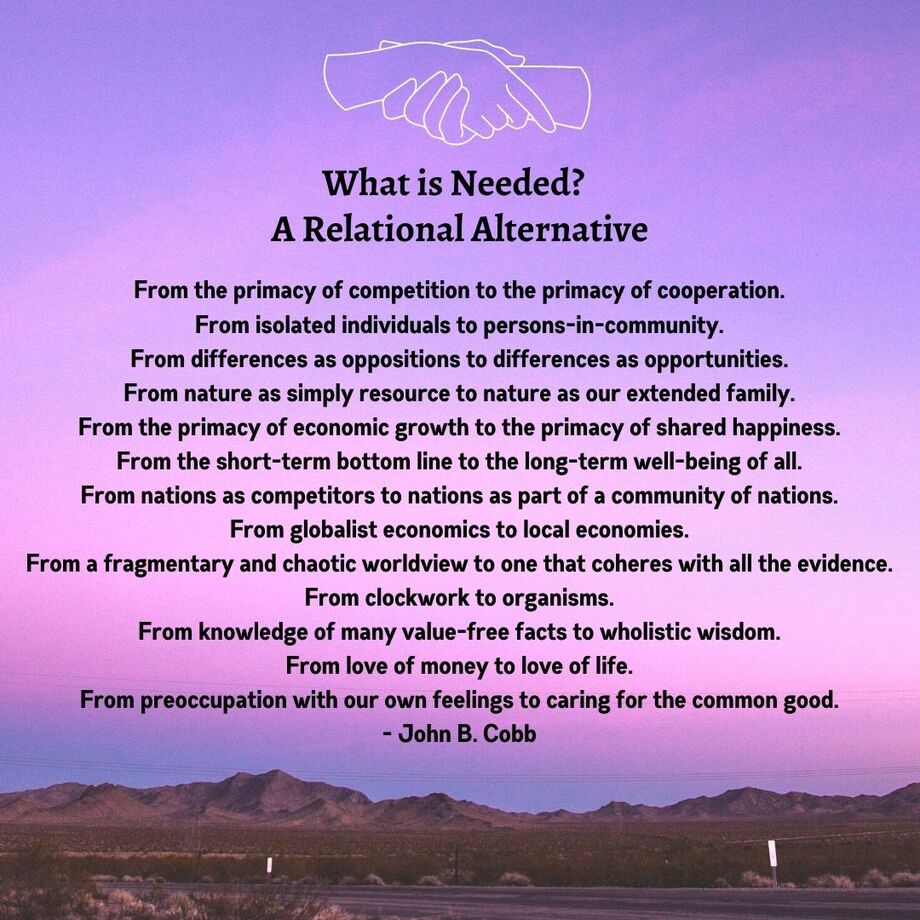- Home
- Process Worldview
- Community
- Art and Music
- Whitehead and Process Thinking
- Podcasts
- Spirituality
- Ecological Civilization
- Education
- Contact
- Social Justice
- Science
- Animals
- Sacred Poems
- Whitehead Videos
- Index of All Titles
- Practicing Process Thought
- Process Spirituality: A Spiritual Alphabet
- Recent Posts
Making the Connection with
Hopes for an Ecological Civilization
I discovered Dr. Gillian Judson through the work of the Institute for Ecological Civilization. She appeared on one of their videos. The Institute for Ecological Civilization is, to my mind, one of the most important organizations on the planet if we are interested in, well, ecological civilization. And we really need to be interested in it, because it is truly the best and only hope for our fragile species. We must learn to live within, not apart from, the larger web of life, understanding the hills and rivers, plants and animals, as extended family. Not that we would be the first to do this. Indigenous traditions the world over have done this for millennia. But we "moderns" must learn from them and move forward into what, in China, they call a 'constructive' postmodern world. There is no way for this to happen without rethinking education, which takes me to the topic of this page:
My friend tells me that, when she took environmental education in college, she was completely bored. It’s not that she lacked interest in the more than human world: the hills and rivers, the plants and animals. She’s a gardener and forest lover. But for some reason her professor didn’t think it very important to engage the imaginations of his students; the course was almost all about memorizing facts to pass weekly exams. Even the field work, with time spent outside in a nearby park, was almost always about learning names for things, but not about, in her words, "feeling connected" with things, Her professor forgot Whitehead’s idea that good education must include ‘romance’ as well as ‘precision.’ He thought emotions got in the way of learning. Whitehead believed, by contrast, that all human cognition includes emotions, that emotions have wisdom in their own right, and that all learning includes emotions.
Dr. Gillian Judson has not forgotten Whitehead's insight. She knows that ecological education of any sort must involve engaging student's emotions and imaginations. With a focus on K-12 education, hers is the kind of approach that can serve the needs of those of us who believe education should be in service to the common good of the world: to the development of what, in China and now in other parts of the world, people call ecological civilization. The snapshot below gives you a sense of the overall vision. We call it the relational alternative, and it includes a shift from thinking of 'nature' primarily as a resource for to thinking of it an an extended family to which we humans belong. This is how Gillian Judson thinks of nature, and she thinks far too much environmental education has yet to make this shift.
- Jay McDaniel, Feb. 26, 2021
My friend tells me that, when she took environmental education in college, she was completely bored. It’s not that she lacked interest in the more than human world: the hills and rivers, the plants and animals. She’s a gardener and forest lover. But for some reason her professor didn’t think it very important to engage the imaginations of his students; the course was almost all about memorizing facts to pass weekly exams. Even the field work, with time spent outside in a nearby park, was almost always about learning names for things, but not about, in her words, "feeling connected" with things, Her professor forgot Whitehead’s idea that good education must include ‘romance’ as well as ‘precision.’ He thought emotions got in the way of learning. Whitehead believed, by contrast, that all human cognition includes emotions, that emotions have wisdom in their own right, and that all learning includes emotions.
Dr. Gillian Judson has not forgotten Whitehead's insight. She knows that ecological education of any sort must involve engaging student's emotions and imaginations. With a focus on K-12 education, hers is the kind of approach that can serve the needs of those of us who believe education should be in service to the common good of the world: to the development of what, in China and now in other parts of the world, people call ecological civilization. The snapshot below gives you a sense of the overall vision. We call it the relational alternative, and it includes a shift from thinking of 'nature' primarily as a resource for to thinking of it an an extended family to which we humans belong. This is how Gillian Judson thinks of nature, and she thinks far too much environmental education has yet to make this shift.
- Jay McDaniel, Feb. 26, 2021

